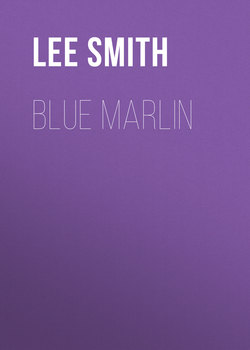Читать книгу Blue Marlin - Lee Smith - Страница 9
На сайте Литреса книга снята с продажи.
ОглавлениеMAMA WAS A great cook. She also loved to talk on the phone, and during the next weeks, I strained to overhear any mention of Carroll Byrd. I got plenty of material. But since Mama generally stayed home and was the recipient rather than the purveyor of news, it was sometimes hard for me to figure out what had actually happened.
“She what?”
“You’re kidding! Why, those rugs are worth a fortune! That furniture came from England!”
“Oh, he did not!”
“Well, that is the strangest thing I have ever heard in my whole life. The strangest!”
“You’re kidding!”
Et cetera.
I had to decipher the news: Carroll Byrd had given away the downstairs furnishings and the Oriental rugs to several distant relations, who showed up in U-Hauls to claim them and cart them away. Then she fired the housekeeper. She hired Norman Estep, a local ne’er-do-well and jack-of-all-trades, to knock down the walls between the kitchen and the dining room and the parlor, and paint everything white, including “that beautiful paneling.” (“Have you ever?”) Next, several huge wooden crates arrived for Carroll Byrd from Maine, and Norman went to the train station and picked them up in his truck and took them to her house.
For Carroll Byrd was a painter, it developed. Not a house-painter, of course, but the other kind—an artist. The minute I heard this, a long shudder ran from the top of my head to my feet. An artist. Of course! She had decided to stay on in her father’s house because she loved the light down here as spring came on.
“The what?’ Mama asked, puckering up her mouth as she talked on the phone to Jinx’s mother. “I mean, it’s light up in Maine, too, isn’t it?”
Well, yes, but Carrol Byrd feels that there is a special quality to the light here in Virginia that she just has to capture on canvas. So now Norman Estep is building frames, huge frames, for her canvases. And now he’s going all around to junk yards for pieces of iron, and now he’s buying welding tools at Southern States Supply. For her sculptures—turns out she’s a sculptor, too. Newly elevated to a position of importance by his privileged relationship with Carroll Byrd, Norman Estep is grilled mercilessly by all the women in town, and clams up. Now he won’t tell anybody anything. Neither what she’s painting, nor what she wears, nor what in the world she does out there all day long by herself. Norman Estep buys groceries for her in the Piggly Wiggly, consulting a list penned in a stark angular hand. He won’t even tell anybody what she eats! He is completely loyal to Carroll Byrd.
But the women turn against her. They drive out there to welcome her, two by two, carrying cakes or pies or casseroles or congealed salad, to be met cordially at the door by the artist herself, who does not ask them in. She responds politely to their questions but does not initiate any topics herself. Finally, in some consternation, the women turn on their heels and lurch off down the long walk, but not before noticing that she’s made a huge mess of the patio—why, it’s got an old iron gate and pieces of junk from the junkyard piled right in the middle of it, some of them welded together into this awful-looking construction that Mama swears is a human figure but Jinx’s mama says is no such thing—and not before seeing that Carroll Byrd’s gotten Norman Estep to plow up all that pretty grass in front of the house for a big vegetable garden, of all things! No lady has a vegetable garden, and no person in their right mind would put such a garden in front of a nice house, anyway. (“Lovely home,” Mama always says.)
Several weeks after accepting the food, Carroll Byrd sends Norman around to deliver the plates and containers back to their original owners, each with its terse little thank-you note attached, written on fine creamy paper with raised initials.
This paper seems to make Mama madder than anything yet. (“I’ll swear! It’s certainly not like she doesn’t know any better.”) By then it is clear to all that Carroll Byrd is determined to be as much of a hermit as her father was, even more of one, and in the way of small towns, everybody stops badgering her and even begins to take a perverse pride in her eccentricity. “See that long driveway goes right up that way?” a visitor might be told. “There’s a world-famous woman artist lives up there all by herself. Never goes past the gate.”
